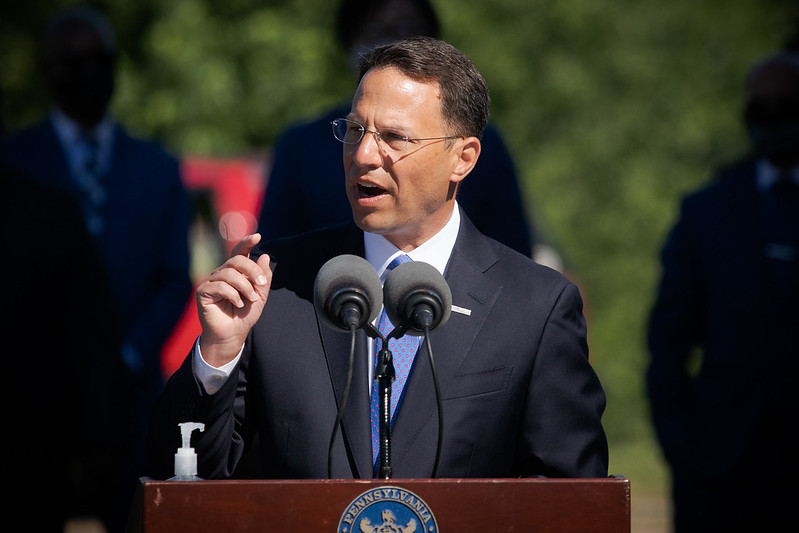When Gov. Josh Shapiro introduced a proposed cap-and-trade carbon credits system last week, he called it a “plan tailored for Pennsylvania.” According to the governor, The Pennsylvania Climate Emissions Reduction Act (PACER) proposal would replace the Regional Greenhouse Gas Initiative (RGGI) and save consumers $252 million.
House Republicans, however, call it a tax on consumers.
“The governor is asking us to pass a tax increase on Pennsylvania without even knowing what that increase is,” said House Republican Whip Tim O’Neal (R-Washington). “I can say with confidence that this proposal as written is Dead on Arrival with the House Republican Caucus.”
House Republican Policy Committee Chairman Josh Kail (R-Beaver) said PACER’s carbon fees would be passed along to residential and business consumers. “This a tax on our neighbors, on our parents, on our kids. This is a tax on our manufacturers.”
Republican Leader Rep. Bryan Cutler (R-Lancaster) compared the PACER proposal to a hostage exchange trading “a bad multi-state agreement [for] a single agreement just with ourselves that is equally high in terms of the tax rate,” he said. “That’s bad policy because we as ratepayers will all be paying that.”
Cutler argued that Pennsylvania’s energy production transition from coal to natural gas reduced greenhouse gas emissions. The state ranked second in the United States in natural gas production behind Texas.
“That’s why [RGGI] wants us in,” he said. “They’ve already adopted policies that limited production in their own states. They need a producer… You’ve got these states that mean well, but then they also say at the same time, ‘Let’s not develop energy in our own area. Let’s have someone else do it.’”
Virginia and New York are the only RGGI states listed in the country’s Top 25 energy producers. Almost half of the eleven RGGI member states are in the bottom five.
Shapiro vowed that PACER would create 14,500 jobs.
Republicans suggest that those added jobs won’t offset the amount of job losses that will happen if PACER becomes law.
“A Pennsylvania-specific cap and tax program will only further single us out amongst our neighbors,” predicted O’Neil. “Forcing energy producers out of state and taking thousands of family-sustaining jobs across our commonwealth with them.”
GOP caucus leadership added that they were extremely concerned that the focus on green energy could destabilize the electric grid and lead to blackouts.
“We had a pretty robust debate on the House floor on what happens with solar panels at the end of their useful life,” said Cutler. “What happens with wind turbines at the end of their useful life or when they fail like when they did in Texas during [the 2021 freeze]? Then you have a serious reliability problem.”
Kail was more sober in his analysis.
“PJM was actually commenting on this,” he said. “We are increasing demand for electricity while at the same time pushing policies like this that decrease our ability to generate electricity. So the more people are using electricity the less reliable the grid becomes. One day you’re going to turn on the lights and they won’t come on.”
A recent study by Quanta Technology warned that loss of “base load” power on the PJM grid as electricity demand continues to rise could put Pennsylvania at risk for blackouts starting in 2028. And that’s without the price pressures of a cap-and-trade system.
The report stated, “Maintaining adequate [electric] resources will be a challenge for the PJM system in the future when the grid is likely to be operating under abnormal conditions (e.g., extreme weather events).”
Why is Shapiro pushing the PACER program, rather than either simply joining RGGI or dropping the carbon credits policy?
O’Neil suggested that Shapiro isn’t focused on the Keystone State but more interested in 1600 Pennsylvania Avenue in Washington, D.C. “Once again, it seems like the governor is more interested in appealing to primary voters in California than making life better for the people right here in the Commonwealth of Pennsylvania.”
The Governor’s Office did not return a request for comment.

